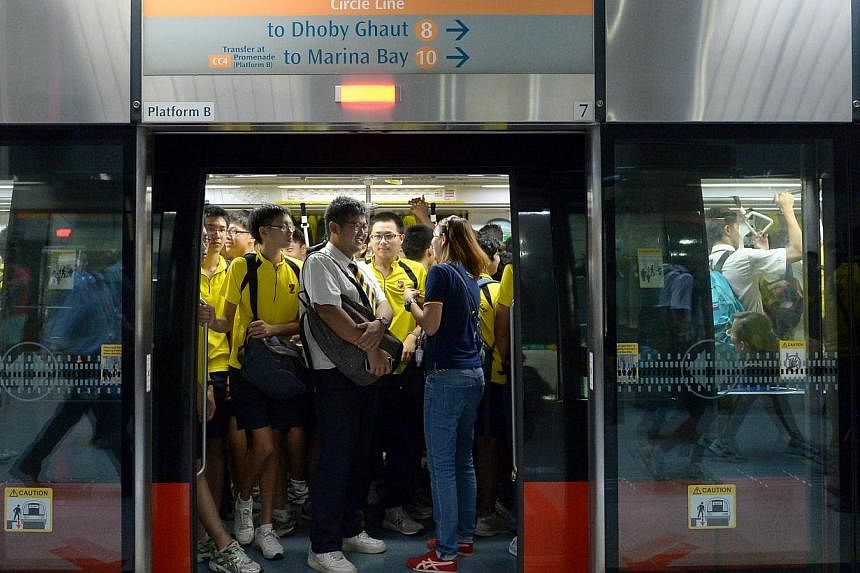The showdown between local school rugby aces at the new National Stadium should have created more of a crackerjack experience for those present rather than tetchy exchanges over little private trains that could. It was a novel way of neatly ferrying the entire school community to an event, yet responses to the train charter proved strong with some attributing these to perceptions of overbearing bureaucracy, class divisions, and misuse of state-funded transport assets. These are concerns weighty enough to wither almost anyone who really just wants to champion youth sports and foster the school spirit.
It need not have been so troublesome, of course, if the decision-makers involved had paused long enough to study the implications of their acts. Anglo-Chinese School (Independent)'s leaders could have considered the social impact of their idea, considering the school's elite image and the deep pockets of its parent support group which reportedly paid for the charter.
Train operator SMRT should have scrutinised the terms of its mandate and not assumed that no approval was needed just because of past charters for National Education shows and National Day events. And the Land Transport Authority could have weighed all the facts beforehand before dispensing a very public rebuke.
One should remain open to train charters in general, as long as these are not during peak hours and do not compromise "core service delivery in ensuring reliable, safe journeys for all passengers", as SMRT put it. In the United States, Amtrak is prepared to customise private charter trains for sports teams, school excursions, incentive trips, meetings and long-haul retreats. Revenue earned can help defray rising costs and thus ease any pressure to revise fare structures. However, at a time when public transport users are feeling the strain of packed coaches, slower journeys and occasional breakdowns, any enthusiasm for charters shown by SMRT would appear misplaced. Hence the need for a savvy public relations approach to commercial activities that would be perfectly understandable in better times.
Private trains can provide an efficient way of moving large groups of people but schools should not go overboard in tapping such services. Given the costs involved, which SMRT remains coy to disclose, the public would expect mass activities to bear a national or charitable character to justify such arrangements, especially when it is for the transport of the entire school population. An out-of-the-box initiative is to be welcomed in schools - not for its own sake but for the larger social good that it aims to serve.

